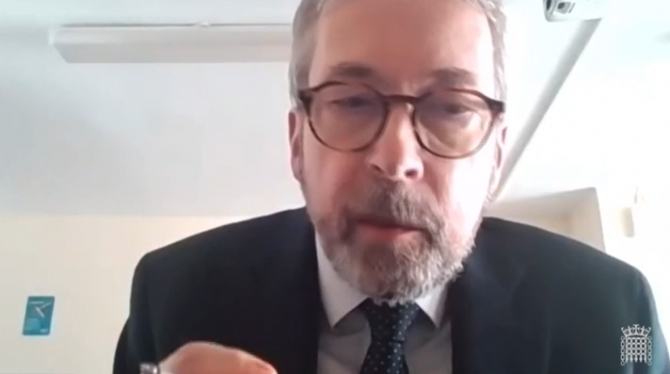Headteachers should keep records if their teachers come under pressure from students and parents to boost exam grades because it may amount to malpractice, Ofqual has said.
The exams regulator is trying to clamp down on external pressure on teachers to influence the grades they award students this summer, after exams were cancelled due to the pandemic.
It comes after heads raised fears the switch to teacher assessment would lead to pressure from parents with “pointy elbows and lawyer friends”.
In guidance on submitting grades published today, Ofqual said schools should be “careful” to avoid teachers being “put under pressure from students, parents or carers to submit grades that are higher than the evidence supports”.
It adds that heads of centres should “keep records of such cases” and that they might be required to report to the exam boards “any cases where they believe inappropriate pressure is being put on teachers”.
Exam boards may treat such cases as “potential malpractice”, Ofqual said.
The guidance, which was consulted-on this month, also says heads will have to declare that judgments “have not been influenced by pressure from students, parents or carers”. This was not in the draft guidance.
The move follows confusion over the process of informing students of the evidence used to reach their grades.
The government has said that although students should not be told their grades before results days, schools will be expected to tell them what evidence they used in reaching their judgments.
Ofqual chief regulator Simon Lebus told MPs earlier this month this would present an “opportunity for a student to say if they think that the evidence that has been used does not accurately reflect the best of their ability”.
This prompted fears the process could be treated as a negotiation over the evidence used.
But Ian Bauckham, interim chair of the exams regulator, insisted last week that the evidence used to issue grades would not be a “topic for negotiation”.
Guidance and materials from the exam boards is yet to be published, but has been promised before the end of March.

Evidence should be across classes or cohorts
Ofqual officials said earlier this month that schools would have some flexibility over evidence used. Exam boards are providing optional additional questions, which schools can use alongside coursework, mock exam results and other evidence.
Final guidance released today states that “as far as possible”, the sources of evidence should be consistent across a class or cohort of students, and schools should record the reasons for their selection.
School will also have to document the rationale for “any instances” where consistent evidence is not used for a whole class or cohort.
Teachers have been told to take historic results of their schools into account when reaching grades. Today’s guidance states that data from 2017, 2018 or 2019 can provide a “useful guide” to the “expected profile” of results.
The use of previous grades will also let schools check they have not been “overly harsh or lenient” in their assessments. If the results look “very different” to recent years, schools need to record the “likely reasons” for that, as exam boards may ask to see it if the school is picked for external checks.
If student work completed before the guidance was published is no longer available, schools should include “appropriate records” instead, Ofqual said. For example, if mock exam scripts were returned to pupils for feedback, a copy of the exam paper and grade boundaries could be used.
Schools can begin to submit grades from May 26, up until a deadline of June 18, the guidance confirms.
Grades should not be impacted by pupil behaviour
Ofqual has also published information for schools on making “objective judgments”.
It states grades should not be affected by a student’s positive or negative behaviour, character or personality, appearance, performance of their siblings, parental opinions or the “knowledge of grades needed to meet a university offer”.
This follows warnings that schools are already being approached by parents stating the grades their children need to progress.
Schools should also be aware of other effects, such as confirmation bias, and “halo effects”, where a positive impression of a student “overly accentuates” their actual skills and abilities.
Dialogue with others can support “reflection” and help “minimise bias”, Ofqual said.








Your thoughts